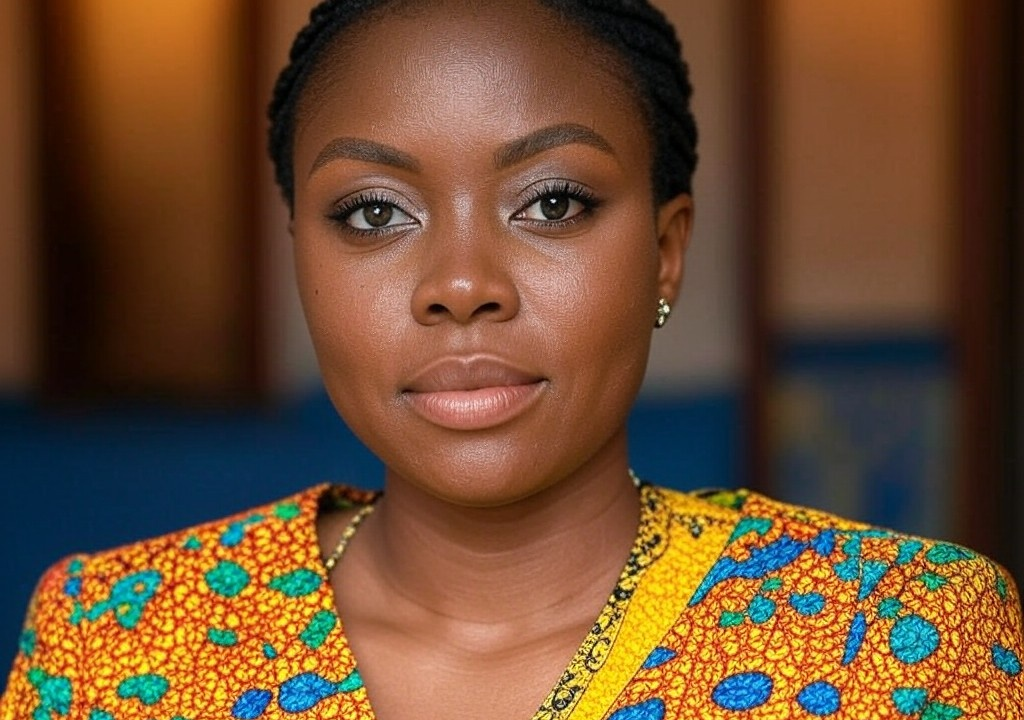When I tell people that I regularly confront my fears, they often look at me like I just announced I personally enjoy running barefoot across Lagos traffic. And honestly, sometimes, it feels just as dangerous. But let’s rewind a little.
We all have things that scare us, right? For some, it’s public speaking or the uncanny ability of their mom to ask invasive questions at a family dinner. For others, it’s commitment, confrontation, or—God forbid—sending a text without rereading it five times. For me? It’s making myself vulnerable. Opening up. Showing people what’s really inside this complex cocktail of sass, self-doubt, and dreams. Vulnerability reminds me of those Nollywood movies where a character tells someone their deep, dark secret, and within minutes, the entire village knows. Who wouldn’t be scared of that?
But here’s the thing about fear—it’s like that one relative who monopolizes the jollof rice at parties. The more you ignore it, the stronger its hold becomes. So, rather than hiding behind a wall of “I’m fine”s and witty clapbacks, I decided to face it. I leaned into vulnerability. And here’s what I learned along the way.
The Fear: What If They Don’t Like Me?
First, let’s talk about the queen of all fears: rejection. It’s the reason why proposing in public is basically an extreme sport. From Abuja to London, rejection stings universally, whether it’s a relationship fizzling out or simply realizing your new co-worker doesn’t laugh at your jokes. (Seriously, how can anyone not find “I only run when there’s jollof on the other side” funny?)
Being vulnerable means putting your authentic self out there and risking the possibility that people might not vibe with you. There’s no safety net of “What if they just misunderstood me?” when you’ve laid it all bare. For me, this fear bubbled to the surface when I wrote my first deeply personal story about heartbreak. I thought to myself: "What if no one gets this? What if they think I’m weak?" The mere idea had me questioning my life choices harder than a Nigerian auntie assessing your marital status.
The Why: Vulnerability Is Strength, Not Weakness
Here’s the kicker: Vulnerability is like a Nigerian party invite—it’s scary to give out because not everyone will appreciate it. But it’s worth it for the people who do. When I wrote that story, something amazing happened. People responded—not with judgment, but with their own stories and gratitude. It was as if I had cracked open a door, and suddenly, I wasn’t alone in the room anymore.
Someone once told me, “Harriet, strength isn’t about what you can hide; it’s about what you’re brave enough to share.” And because I come from a family where sharing food is a sacred art form, I finally understood. Vulnerability allows connection. It brings people closer, helping them see your imperfections as relatable instead of flaws. Now, whenever I feel tempted to keep my guard up, I remind myself that perfection is boring. Seriously, have you ever seen a flawless person tell an interesting story? Same.
The Fear: What If I Fail?
Failure and I are old acquaintances. We met during my first attempt at blending cultures in my dating life. Picture this: a confident (read: completely clueless) Nigerian woman in London, dating someone who didn’t understand what “you’re chopping my money” meant. I tried to explain our playful Nigerian idioms, our love for banter, our “you must eat before you go” energy. It was like trying to teach a toddler calculus.
Eventually, it ended. And I felt like a cultural ambassador who had just failed her country. It wasn’t just the relationship that fell apart—it was the dream of effortlessly merging two worlds. The heartbreak came not just from loss, but from the mortifying voice in my head whispering, “What if this was your last shot?”
The Why: If You Don’t Try, You Can’t Win
When we let fear of failure stop us, it’s like sitting in traffic long after the cars have started moving—pointless. Facing fears, even with the possibility of failure, is the only way to progress. So I did what any stubborn Nigerian would do: I tried again. I had brutally honest conversations about cultural differences. I explained how one’s inability to pronounce “egusi” correctly wouldn’t end the world (even if my mom disagreed). I learned that two people can love in different languages and still share a rhythm that works.
And guess what? When you fail, you learn. When you succeed, you celebrate. Either way, you move forward.
The Fear: What If It Hurts?
Ah, pain. The one thing everyone avoids, yet the one thing life insists on handing out like a flyer on a crowded street. Emotional pain, especially, can feel like a never-ending Nollywood drama—just when you think the chapter is closed, it reappears with a plot twist.
For me, emotional pain hit hardest when I moved to London. It wasn’t just homesickness—I missed the chaos of Lagos traffic, the laughter that spilled into my family’s living room after a meal, and even the unsolicited “advice” from elders. It felt like I had left a part of myself behind, and for a while, I resisted creating new connections. Why open up, when it could hurt?
The Why: Healing Comes After Hurt
Here’s the paradox: The things we fear most are often the things that heal us—like drinking that bitter herbal concoction your mom swears fixes everything. By allowing myself to feel the loss, I found ways to honor where I came from while carving out a new space for myself. I learned that you can hold the ache of missing something while celebrating the new joys in front of you.
I let myself love, stumble, and create memories in London, and the process healed me in ways I never could have imagined. Yes, pain is a two-edged sword, but that other edge—healing—is always worth using.
Facing Fear: A Cheat Sheet
If you’re still reading this and wondering how to confront your own fears, here are a few things that helped me:
- Start Small: You don’t need to bare your soul to a stranger over coffee. Open up little by little in safe spaces.
- Reframe Rejection: Someone rejecting you doesn’t diminish your worth—it just means they’re not your people.
- Have a Support System: Trust me, vulnerability is easier when your best friend is on standby with ice cream and relatable memes.
- Remember the “Why”: Courage isn’t about eliminating fear; it’s about remembering that what’s on the other side is far more rewarding.
Fear will never completely vanish, and honestly, it shouldn’t. It’s a sign that what you’re facing matters. Whether it’s taking a chance on love, speaking your truth, or being the first to say, “This is who I am,” confronting your fears is the only way to live fully. And in the end, isn’t that the point?
So, yes—I face my fears. Not because they don’t scare me, but because I refuse to let them keep me from the life I want. And neither should you.




















